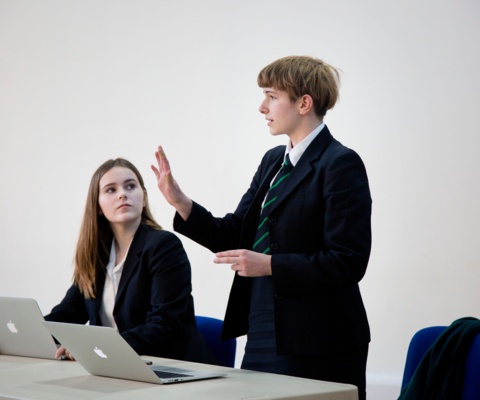Politics


Politics is taught in the Sixth Form at Norwich School.
Many people seem to think that politics is ‘something to do with the Prime Minister and the House of Commons’. Yet whenever two or more people exist together, there is a political element.
Aristotle famously proclaimed that 'Man is a political animal'. But perhaps the bluntest definition is that of the American political scientist, Harold Lasswell: ‘Politics is who gets what, when, how.’ In other words, the subject is absolutely fundamental to all human interaction.
In the Politics Department, our prime objective is to enable pupils to develop a knowledge and understanding of:
- contemporary political structures and issues in their historical context, both within the United Kingdom (UK) and globally
- the changing nature of Politics and the relationships between political ideas, institutions and processes
- the influences and interests which have an impact on decisions in government and in political life
- the rights and responsibilities of individuals and groups
Pupils also develop the ability to critically analyse, interpret and evaluate political information, enabling them to form arguments and make judgements and develop an interest in, and engagement with, contemporary politics. Invaluable skills in these turbulent times.
Content and assessment overview
The Edexcel Advanced GCE in Politics consists of three externally- examined papers
Component 1: UK Politics written examination
Candidates study democracy and participation, political parties, electoral systems, voting behaviour and the media. Pupils also study Core Political Ideas including conservatism, liberalism and socialism.
Component 2: UK Government written examination
Content studied includes: the constitution, Parliament, the Prime Minister and executive, and the relationships between the branches of government.
Pupils also study one ideology from the following: anarchism, ecologism, feminism, multiculturalism and nationalism.
Component 3: Comparative Politics written examination
Pupils study Global politics, focusing on efforts to deal with global challenges like conflict, climate change, poverty and human rights. Units include the impact of globalisation on the nation state; the United Nations and NATO; economic, human rights and environmental governance; systems of power; and regionalism and the European Union.
